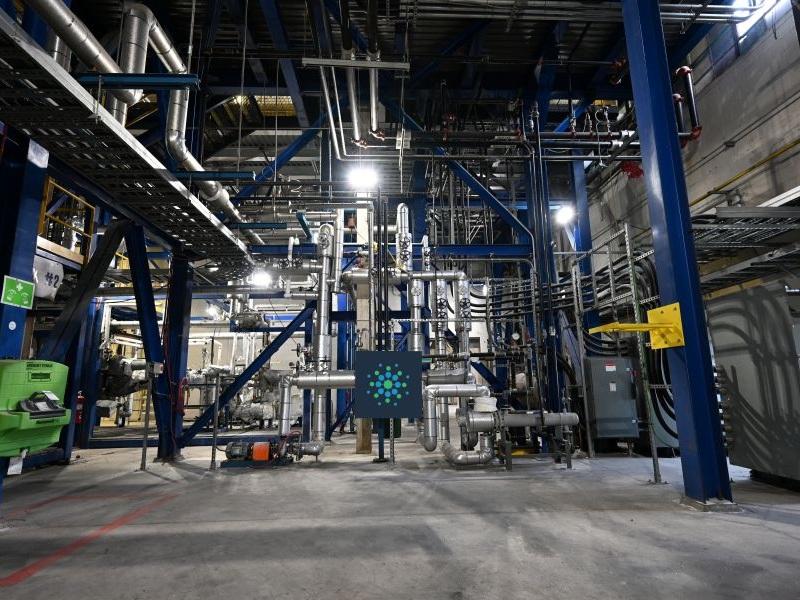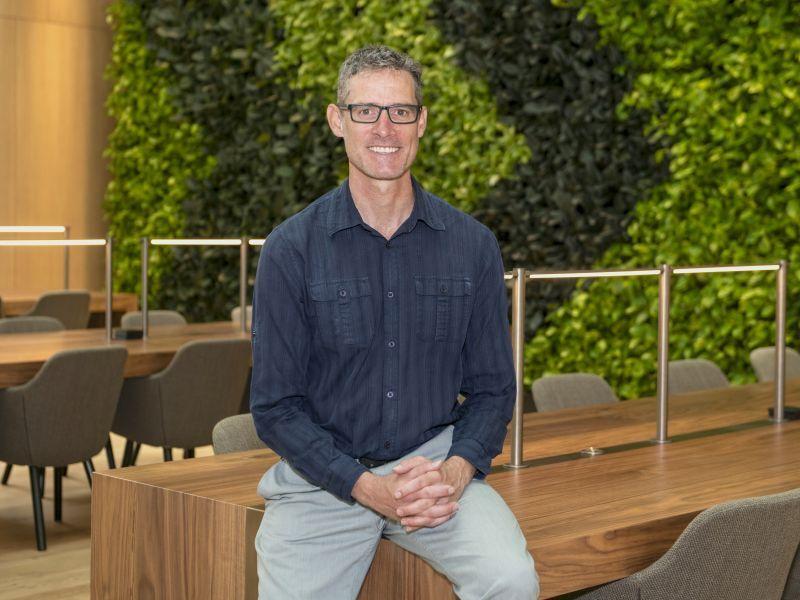
CULT Food Science Corp. has launched a separate product division, CULT Foods, and the company’s first two cell-grown food items: a sparkling coffee beverage and collagen-based performance gummies.
Cell-based food is grown in a lab from the cells of the real product without the use of antibiotics, eliminating agriculture-related environmental damage and animal slaughter while reducing the risk of zoonotic diseases.
The company says Zero Coffee and Free Candy mark the first sparkling coffee and collagen performance gummies produced through cell culture harvesting for food, known as cellular agriculture. The product names refer to their farm-free creation.
In its announcement, CULT says the auxiliary foods market – which coffee beans and collagen are a part of – could be valued at over $50 billion.
Founded in 1983 and headquartered in Vancouver, CULT (CULT-CN) also has offices in Edmonton and Toronto. Originally, the company was focused on what Gafour called “traditional ag-tech” and robotics before pivoting fully into cellular agriculture.
“That's really what (allowed us) to be able to create this CULT Foods division . . . there's way more power in the cell-based technologies to not only address the staples that people are familiar with, like milks, beef and chicken that the companies are working on today, but also all the auxiliary products,” said CULT CEO Lejjy Gafour.
“We are seeing a common theme, that there's an opportunity to start to create more sustainable approaches for these auxiliary products that people buy every day and begin to address the issue of where those core ingredients come from and the impact on the environment.”
The Cult Foods division
Along with developing its own cellular agriculture technology, CULT invests in start-up, private or early-stage cultivated meat, cell-based dairy and other cultured food companies.
The new division will leverage the technologies in CULT’s investment portfolio, which stands at 18 companies. This includes Toronto-based Cell AG Tech, which focuses on cell-cultured seafood, and Montreal-based Opalia, which makes cow milk from mammary cells.
The decision to launch a separate product division came down to market focus and skill sets. For example, one of CULT’s divisions is solely dedicated to working on bioreactors needed to produce cellular agriculture.
“The technologies can definitely blur the line between cellular agriculture or mammalian cell culture, specifically, and then (there are) many different precision fermentation techniques depending on what you're making. We focus on this by building both products in-house, and companies,” Gafour said.
“So we take an investment and venture studio model approach, where we do develop new IP (intellectual property) in-house and with our affiliate companies, and go through the traditional way of building to MVP (minimum viable product) and market validation. Then if it's clear that that has traction, make sure that it's spun out into its own venture to really maximize the impact.”
The new division is comprised of three full-time employees, but as more products are added to the lineup that is expected to grow.
Discussions began in summer 2022, with the company first speaking to its affiliates.
He also promised “many more” product announcements coming later this year. CULT's website FAQ talks about a product pipeline that includes meat, dairy products and pet food.
Zero Coffee and Free Candy
Zero Coffee and Free Candy are CULT Foods' first products because of the different levels of technology maturation for each product, Gafour said. He used the example of a cell-based steak being much more difficult to produce given the complexities of weaving in bone, fat and meat.
By contrast, cell-based collagen and coffee production are farther along. He also noted concerns about the difficulty of growing coffee and resulting high prices due to climate change.
He was unable to comment specifically on production times for cell-based coffee or candy, compared to traditional means, but did say cell-based production is quicker for the majority of animal-derived products.
For the availability of the new products, he said there would be more private releases before they'll be available publicly. The company has a list of those that will be able to try the product prior to wider release that includes investors and interested buyers.
The goal is to eventually have wide public availability online, but “given the interest from wholesalers, it’s definitely not out of the question that that may come before the public general availability.”
Without stating hard numbers, Gafour explained the candy will have a premium price, while the coffee “will have a small premium on it.”
Gafour said a full life-cycle analysis is in the works for both products to determine their emissions impact.
He mentioned CULT facilities for both product prototypes and ones that will be used for mass production. Facilities intended for mass production will increase across North America over time.
Growth of the Cult Foods Division
CULT’s investment portfolio gives the division access to specific ingredients that it would otherwise have to develop on its own. One such company, San Francisco-based MeliBio, uses microbiology to create honey without the use of bees. Gafour explained it makes more sense for the division to source cell-based honey from MeliBio, rather than developing a solution themselves.
While no roadmap was given, the ultimate goal of CULT’s new division and the company at large is to create 100 per cent cell-based, sustainable alternatives for just about every product in a grocery store.
“We would like to be able to provide, with every single product that a consumer can buy today on the shelves, a cell-based alternative,” Gafour said.










